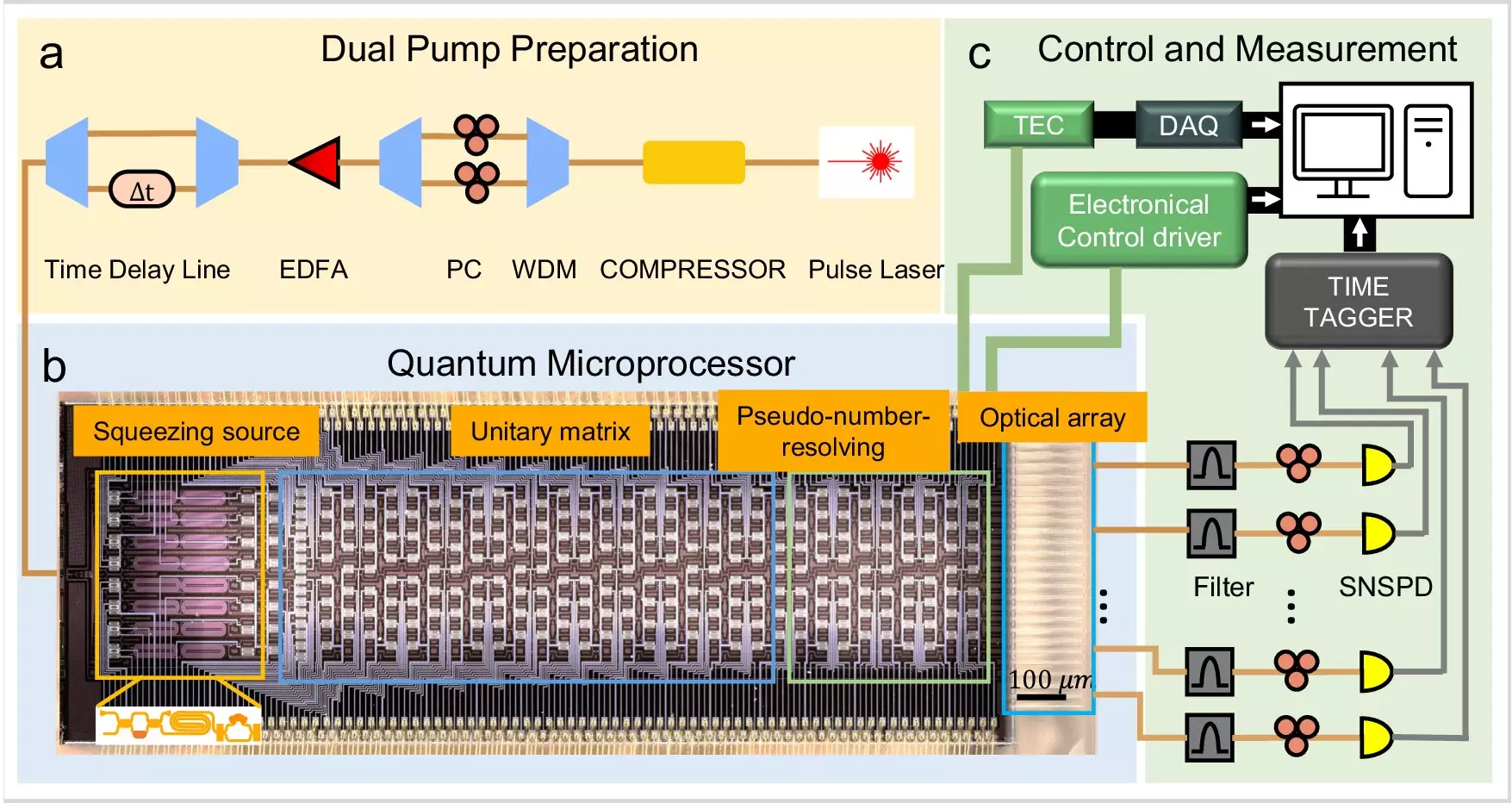Quantum simulation has emerged as a groundbreaking technique that enables scientists to tackle complex systems that were previously deemed impossible to study using classical computers. This revolutionary approach has implications across a wide array of industries, from financial modeling to pharmaceutical discoveries, AI, and machine learning. One particularly challenging area is molecular vibronic spectra, which plays a crucial role in understanding molecular properties for design and analysis purposes.
Researchers at The Hong Kong Polytechnic University (PolyU) have made significant strides in advancing quantum simulation technology by developing a quantum microprocessor chip specifically designed for molecular spectroscopy simulations of large and complex molecules. This unprecedented feat represents a major breakthrough in the field, as previous efforts were limited to simple molecule structures due to issues related to accuracy and noise.
Accurately capturing quantum effects in molecular spectroscopy simulations requires meticulous attention to detail. Quantum superposition and entanglement, which are fundamental quantum phenomena, add layers of complexity to the simulations that are computationally intensive to model using classical approaches. The research team at PolyU has addressed these challenges head-on, paving the way for tackling previously insurmountable quantum chemistry problems.
The research led by Professor Liu Ai-Qun and Dr. Zhu Hui Hui, along with a team of collaborators from various institutions, has been published in Nature Communications. The paper titled “Large-scale photonic network with squeezed vacuum states for molecular vibronic spectroscopy” outlines the development of a 16-qubit quantum microprocessor chip integrated into a single chip, representing a significant milestone in quantum computing technology.
The implications of this research extend beyond theoretical advancements in quantum simulation. The quantum microprocessor chip developed by the research team opens up new avenues for practical applications, such as simulating large protein structures and optimizing molecular reactions with unprecedented speed and accuracy. Dr. Zhu Hui Hui highlighted the potential for early practical molecular simulations that surpass classical limits and hold promise for achieving quantum speed-ups in quantum chemistry applications.
The development of quantum microprocessor chips represents a significant technological advancement in the realm of quantum information processing. These chips serve as an attractive hardware platform for various scientific fields, including material science, chemistry, and condensed matter physics. The integration of quantum microprocessor chips into practical applications marks a significant step forward in leveraging quantum technologies for real-world solutions.
Looking ahead, the research team aims to further scale up the quantum microprocessor chip and explore more intricate applications that could benefit society and industry at large. The potential for quantum simulation technologies to revolutionize various industries is immense, with applications ranging from molecular docking problems to quantum machine learning techniques like graph classification.
The advancements in quantum simulation technology, particularly in the field of molecular spectroscopy, represent a significant leap forward in harnessing the power of quantum computing for practical applications. The groundbreaking research conducted by Professor Liu Ai-Qun, Dr. Zhu Hui Hui, and their team at The Hong Kong Polytechnic University has paved the way for a new era of quantum technologies with far-reaching implications for scientific endeavors and technological innovations.


Leave a Reply